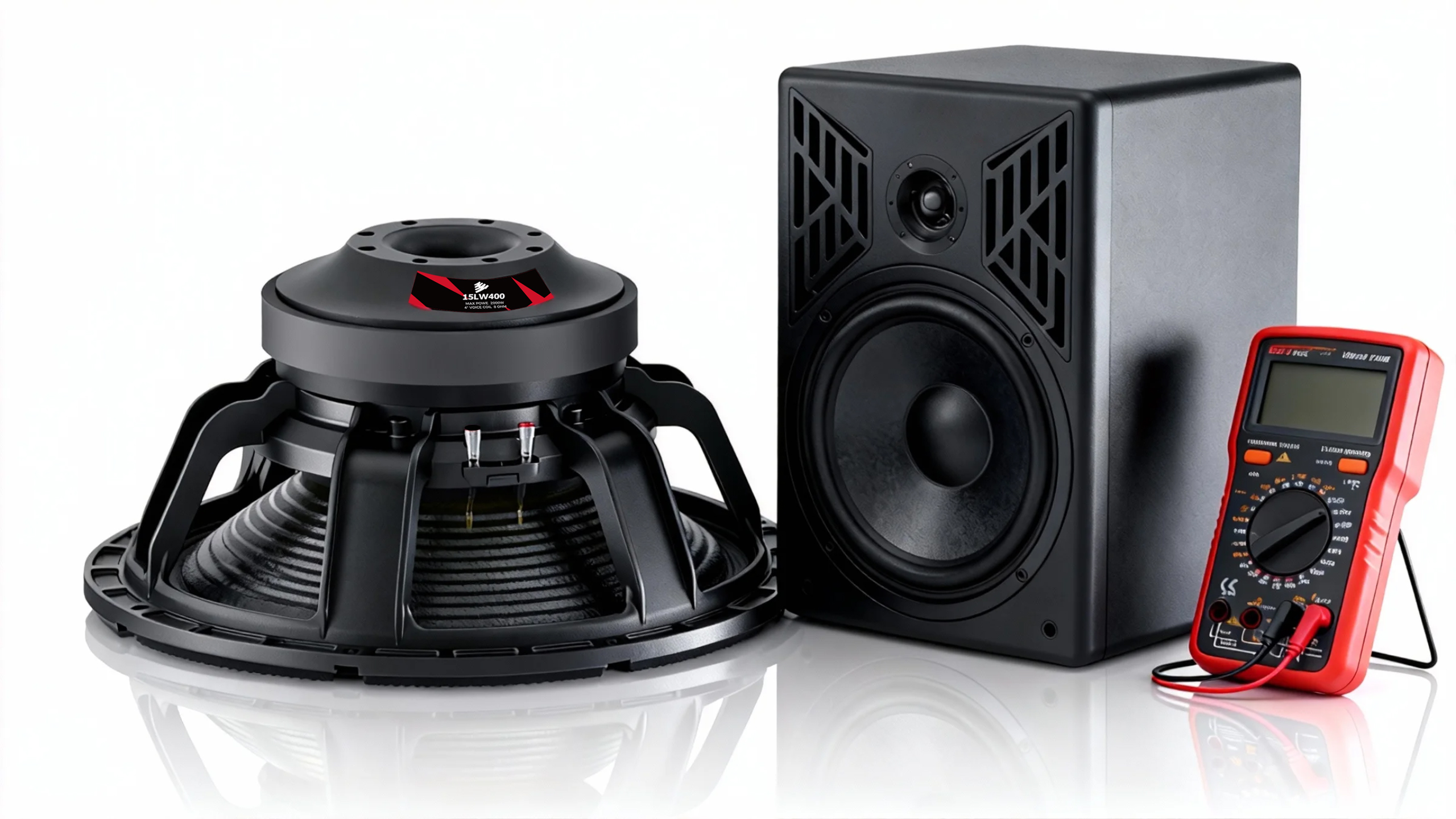
In professional sound setups — from live events and concert tours to club installations and outdoor performances — PA speakers is absolutely the core.
To make sure that speakers can output consistent power and clarity under demanding SPL levels, routine testing is essential.
A multimeter is a quick, easy, and dependable way to test your speakers.
It lets you test how well your speaker is performing and ensures its coil and impedance are in good shape.
And now, we will tell you the process of testing your PA speaker with a multimeter.
Why Test Speakers with a Multimeter?
PA systems run at high volumes often. Over time, voice coils may overheat, cones may deform, and it is possible that connection points loosen.
Testing your speakers with a multimeter helps you:
- Identify shorted or open coils
- Confirm impedance whether is ok
- Find weak or damaged drivers before they fail on stage
It's a quick, safe, and non-powered diagnostic way ideal for engineers, rental companies, and technicians.
How to Safely Prepare for Speaker Testing
Before testing your PA speakers, keep these points in mind:
- Disconnect power: Unplug the amplifier to stay safe.
- Access the terminals: Take the speaker out from cabinets if you can, or make sure the terminals are exposed and reachable.
- Proper setup matters: Turn your multimeter to Ohms (Ω) and pick the lowest range, usually 0–20Ω.
- Check the specs: Look up the rated impedance — 4Ω, 8Ω, 16Ω — so you know what numbers to expect.
Operate correctly so you can test safely and accurately.
How to Test a PA Speaker
- Connect the test leads
- Red one → positive terminal (+)
- Black one → negative terminal (–)
- For dual voice coil units, test each coil separately.
- Read the resistance:The rated resistance is usually the AC resistance, while the resistance measured with a multimeter is generally the DC resistance. In this case, it is normal the measured resistance will be lower than the rated resistance.
- Example: An 8Ω speaker usually reads between 6.2Ω and 7.5Ω, which is normal.
- Check for open or shorted circuits
- “OL” or “∞”: There is some problems with your coils
- Near 0Ω: The coil is shorted
- Observe stability:The reading should remain stable. If it fluctuates heavily, there may be internal speaker damage or have poor connections.
- Test multiple drivers in one cabinet:If your PA cabinet includes woofers, mids, and tweeters, it is better for you to test each driver individually to locate the fault.
Going Beyond the Multimeter: Speaker Checks
A multimeter can reveal a lot, but there’s more to keeping your PA speakers healthy:
- Look & Listen: Inspect for coils, surroundings, and connections.
- Feel the diaphragm/Cone: Give the diaphragm/cone a push and it should move easily and quietly, without any scratching feel.
- Test the Sound: Try a bass test tone; if it sounds clean and solid, your speaker is performing well.
Make it a habit: check impedance before each show and enjoy worry-free, perfect sound.
ZTZ Speaker’s Engineering Advantage
At ZTZ Speaker, every speaker is engineered for high SPL stability and long-term reliability which makes maintenance stress-free and performance more dependable.
Key Design Highlights:
- Precision Voice Coil Design: Like high-temperature CCAW or copper voice coils ensure stable impedance and low distortion at high SPL.
- Enhanced Magnet Circuit: Optimized magnetic gap and structure improve energy transfer efficiency.
- Durable Terminals and Soldering Points: Make readings accurate and reduce contact problems while testing.
- High SPL Reliability: Each model undergoes high sound pressure endurance tests to keep stable resistance under heavy load.
Whether for rental operations or touring rigs, ZTZ PA speakers deliver consistent, measurable performance — even after long time use.
Conclusion
Testing your PA speakers with a multimeter isn’t just technical know-how — it’s a mark of professionalism.
It keeps your speaker healthy, your sound clean, and your audience impressed.
With ZTZ Speaker’s high-performance, precision-engineered drivers, you get reliability that stand the test of time which can ensure your system delivers pure, powerful sound every time the music starts.
 English
English